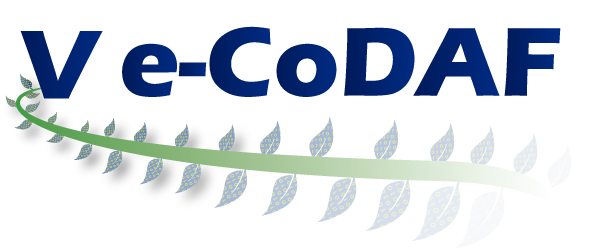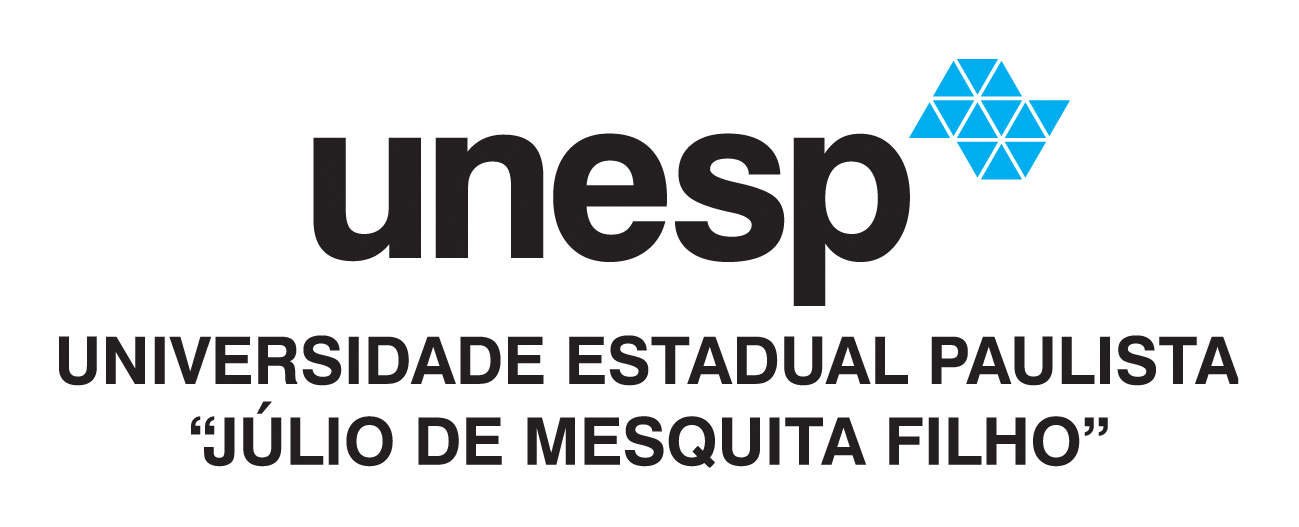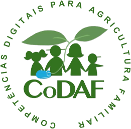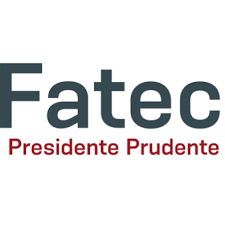e-CoDAF - Digital Skills for Family Farmers Meeting
The E-CoDAF - Digital Skills for Family Farming Meeting is promoted by the CoDAF - Digital Skills for Family Farming Meeting project. The meeting takes place annually, focusing on the presentation of reflections on proposals for the application and use of Information and Communication Technologies by the rural sector, especially for producers and interested in Family Farming, and has the collaboration of higher education institutions, which increases its visibility and the achievement of results. The papers presented at the event are available in the Proceedings.
V e-CoDAF - Digital Skills for Family Farmers Meeting

Theme: Data Access Technologies for Small Rural Management
This year, the V e-CoDAF - V Meeting Digital Skills for Family Farming presents the theme Data Access Technologies for Small Rural Management. V e-CoDAf is promoted by the CoDAF - Digital Skills for Family Farming Project and focuses on presenting proposals for the development and use of Information and Communication Technologies by the rural sector, especially for small producers. In this edition, it will count on the collaboration of three higher education institutions (UNESP/Tupã, FATEC/Presidente Prudente, UFPA/Belém and Tucuruí), which increases its visibility and results reach.
ISBN: 78-85-67703-03-9
Evaluation of the development of the crinkle lettuce submitted to different crop system: conventional, hydroponic and aquaponic
Authors
Renan Borro Celestrino
Centro Universitário de Adamantina (UNIFAI) | renan.celestrino@hotmail.com | https://orcid.org/0000-0002-2712-8923 |
Juliano Antoniol de Almeida
Centro Universitário de Adamantina (UNIFAI) | julianoaachui@hotmail.com | https://orcid.org/0000-0002-5663-8922 |
João Pedro Tavares da Silva
Centro Universitário de Adamantina (UNIFAI) | joao-pedro20v@hotmail.com | https://orcid.org/0000-0002-3745-7501 |
Vitor Antônio dos Santos Luppi
Centro Universitário de Adamantina (UNIFAI) | vitor.luppi@hotmail.com | https://orcid.org/0000-0002-5585-0577 |
Eliana Cristina Generoso Konrad
Centro Universitário de Adamantina (UNIFAI) | eliana_generoso@bol.com.br | https://orcid.org/0000-0001-8365-1703 |
Silvia Cristina Vieira Gomes
Centro Universitário de Adamantina (UNIFAI) | tinavieiragomes@hotmail.com.br | https://orcid.org/0000-0003-2413-556x |
Abstract (Portuguese)
O objetivo deste trabalho foi avaliar o desenvolvimento da alface-crespa (Lactuca sativa: var. crispa) submetida a diferentes sistemas de cultivo. O experimento foi instalado e conduzido no município paulista de Adamantina, no período de agosto a setembro de 2017, utilizou-se o delineamento inteiramente casualizado, com três tratamentos, dez repetições e trinta e seis plantas por tratamento onde foram denotados como: sistema convencional utilizando 200 g.m2-1 de esterco de galinha curtido, sistema hidropônico e sistema aquapônico. Avaliou-se o comprimento da folha, massa fresca das folhas, comprimento radicular e massa fresca da raiz. A colheita foi realizada após 36 dias do plantio das mudas, onde foram denotadas diferenças significativas entre os tratamentos e as variáveis analisadas. Observou- se que o crescimento e desenvolvimento da alface-crespa mostrou ser mais eficaz a sua condução no sistema convencional. O sistema hidropônico apresentou ser uma alternativa viável para os produtores, tendo em vista a sua praticidade no manuseio das hortaliças. A aquaponia mesmo apresentando resultados inferiores aos encontrados no experimento convencional mostrou ser uma alternativa sustentável para os pequenos produtores, levando em conta a produção de hortaliças e pescados de uma só vez.
Palavras-chave: Sistema de Produção. Agricultura familiar. Sustentabilidade. Olericultura.
Abstract
The objective of this work was to evaluate the development of crisp lettuce (Lactuca sativa var. Crispa) submitted to different cropping systems. The experiment was installed and conducted in the municipality of Adamantina, Brazil, from August to September 2017, using a completely randomized design, with three treatments, ten replicates and thirty six plants per treatment where they were denoted as: conventional system using 200 g.m2 -1 of tanned chicken manure, hydroponic system and aquaponic system. Leaf length, fresh leaf mass, root length and fresh root mass were evaluated. The harvest was performed after 36 days of planting of the seedlings, where significant differences between the treatments and the analyzed variables were denoted. It was observed that the growth and development of curly lettuce showed to be more efficient to conduct in the conventional system. The hydroponic system presented a viable alternative for the producers, considering their practicality in the handling of the vegetables. The same aquaponics presenting results lower than those found in the experiment shows to be a sustainable alternative for the producers, taking into account the production of vegetables and fishes at one time.
Keywords: Production System. Family farming. Sustainability. Olericulture.




